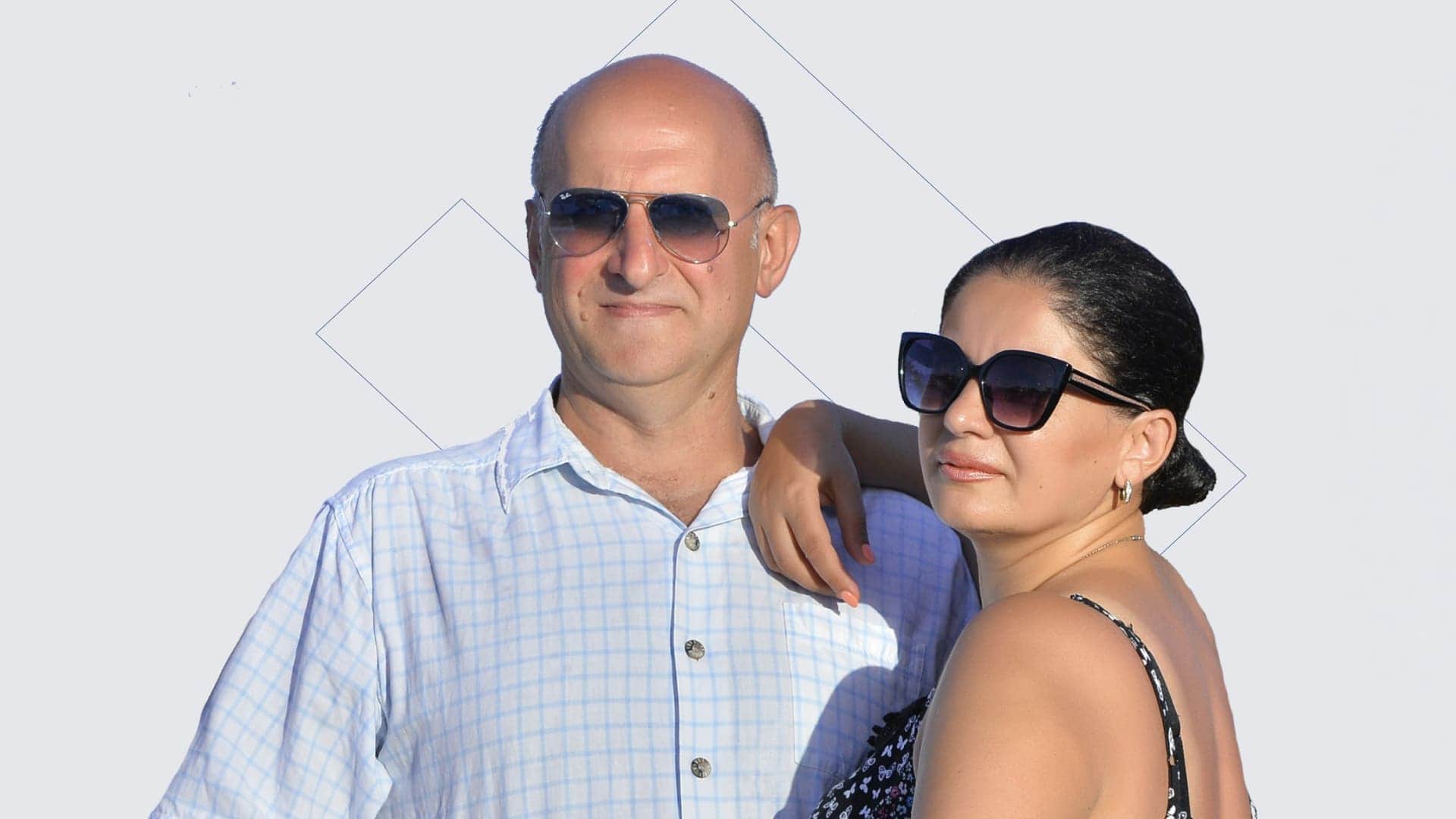How to get Malta permanent residence for the whole family if children are from different marriages
Traveling to Europe is not a luxury, but a necessity. If you want a big and profitable business, be ready to meet with suppliers and partners on their territory. If you want to provide a future for your children, make sure that they have a quality education that is quoted in the world. I decided that my family and I would have it all: prosperity, freedom and a bright future.

Dmitry, 46 years old
Car service network owner
Clients’ names and photos have been changed

Dmitry is a businessman from Kazakhstan. In November 2020, he decided to obtain a residence permit in the European Union in order to travel to the region without visas even in a pandemic and to give children a high-quality European education.
Dmitry has five minor children, but from three different marriages. In order for all children to receive a European residence permit with an investor, each child required the consent of both parents.
Immigrant Invest lawyers helped the family to correctly issue consent for the participation of children and obtain permanent residence in Malta with savings of €180,000.
Why does Dmitry need a residence permit in the European Union?
Visa-free travel to Europe. Before the pandemic, Dmitry traveled to Berlin and Seoul several times a year to meet with suppliers and to visit car exhibitions: the businessman owns a network of car services in Nur-Sultan and buys auto parts from German and Korean manufacturers. But if Dmitry does not need a visa to travel to Korearnas a citizen of Kazakhstan, but to enter Germany, he will receive a Schengen visa.
In 2020, Schengen visas were no longer issued to citizens of Kazakhstan. Embassies, consulates and visa centers of the Schengen countries in Kazakhstan either temporarily did not work, or provided only a limited number of services, which did not include the issuance of new visas.
The education of his five children is also important for Dmitry. His eldest daughter turned 16 in September 2020. She is preparing to enter the University of Amsterdam. Every summer Dmitry sent the rest of the children to foreign language and summer schools, so that they would also enter prestigious European universities in the future.
The investor understood that he would not be able to develop a business and help children without the opportunity to travel freely to the Schengen area, even during a pandemic. From the article Immigrant Invest, he learned that he can solve his problems with a European residence permit.
Why Dmitry chose permanent residence in Malta
On November 23rd, 2020, Dmitry turned to Immigrant Invest for advice. He wanted to get a document for visa-free entry and stay in the European Union, but did not know which country’s program to choose.
On November 23rd, 2020, Dmitry turned to Immigrant Invest for advice. He wanted to get a document for visa-free entry and stay in the European Union, but did not know which country’s program to choose.
Four factors influenced the choice of an investor:
ability to retain citizenship of Kazakhstan;
no need to move to the country of residence;
document validity and conditions for extension;
visa-free entry to the Schengen countries.
1. Does an investor need to renounce Kazakhstan citizenship? Kazakhstan citizens can not have two passports. If a citizen receives a passport in another country, he will automatically lose his Kazakh citizenship.
Dmitry and his family constantly lived in Kazakhstan and developed business in the country. He did not want to lose his citizenship, so he immediately refused the opportunity to obtain a second passport, for example, a Maltese one. The investor’s family will not have such problems with a foreign residence permit.
2. Is it obligatory to live in the country of residence? If the investor receives a residence permit in Malta by investment or a residence permit for financially independent persons, he moves to the country of residence and spends at least 183 days a year. At the same time, the investor changes his tax residence and pays taxes in the country where he lives for most of the year.
Dmitry’s family did not plan to move to the European Union, so the option of a Maltese residence permit and residence permit for financially independent persons, for example, in Austria and Switzerland, was not suitable for them. Although a residence permit card can be used instead of a Schengen visa to travel to the region.

With permanent residence in Malta, investors travel visa-free to more than 180 countries without visas, including the UK, US and Japan. They also can live, work, study and do business in any country in the European Union
3. How often do you need to renew your residence permit? A temporary residence permit in EU countries is issued for a year or two years. Upon expiration of the validity period, the residence permit card must be renewed.
Permanent residence permit is valid for life. EU permanent residence cards are valid for five years, after which they are extended on the basis of a certificate of naturalization. The investor receives the certificate immediately along with the first permanent residence cards.
Dmitry did not want to re-collect documents every year for the re-issue of residence permit cards. And he could get permanent residence for investments only in Malta or Cyprus.
4. Is it possible to travel without visas in the Schengen countries? Cyprus is a part of the European Union, but not part of the Schengen area. Holders of Cypriot permanent residence cards travel without visas to Bulgaria, Ireland, Croatia and Romania only. For travel to other countries in the region, such as Germany, residents of Cyprus receive a Schengen visa.
Malta is part of both the European Union and the Schengen area. Maltese residents use their permanent residence card for visa-free travel to 26 countries in the region.
Having considered the pros and cons of options in different countries, Dmitry settled on permanent residence in Malta. He entered into an agreement with Immigrant Invest to participate in the Malta Residence Visa Program.

Igor Buglo,
Head of the Maltese office, MBA
The permanent residence program in Malta is one of the most demanded among investors. The status is issued for life, while the investor is not obliged to spend most of the year in the country, neither before nor after receiving permanent residence. And as residents of a country which is a member of the European Union, holders of Maltese permanent residence cards receive various benefits: from visa-free travel in Europe to access to the services of European financial institutions.
Obtaining consent for Dmitry’s children from different marriages
Dmitry wanted to receive permanent residence in Malta with his wife and five children. But not all children are biological to his current spouse. Their marriage is the third for Dmitry, and the two older children were born in previous marriages.
The investor’s children from previous marriages are underage. Therefore, they can only take part in the program with the consent of both parents.
Consent to the participation of children in the investment program must be given in writing, the document must be signed by both parents. It is mandatory to sign the consent at the Embassy or Consulate of Malta, in the presence of a responsible officer of the selected Maltese mission.
Immigrant Invest lawyers made an appointment for Dmitry’s family at the Embassy of Malta in Nur-Sultan. On the appointed day, Dmitry with his ex-wives appeared at the embassy, accompanied by an Immigrant Invest lawyer. They signed a consent form for Daria and Pavel, and an embassy official and a notary certified the authenticity of their signatures.
What other documents were needed to apply for permanent residence
To take part in the Maltese permanent residence program, Dmitry provided lawyers with:
Copies of passports of all family members.
Police clearance certificates for applicants over 16 years old.
Marriage certificates.
Birth certificates of children.
Higher education diplomas.
Medical insurance for the whole family.
The lawyers also compiled a history of Dmitry’s wealth and a list of assets in his possession: real estate, business, savings and bank deposits. This is necessary to confirm the investor’s wealth, at least €500,000 under the terms of the permanent residence program.
Preparation of the documents took a month and a half, taking into account the signing of consent for the participation of children. Lawyers have also completed government questionnaires and forms.
1.5 months
Lawyers were preparing the documents
Dmitry paid for the Due Diligence before submitting the application as the receipt is included in the mandatory package of documents.
Due Diligence in Malta
On January 11th, 2021, the Immigrant Invest lawyers submitted Dmitry’s application for consideration to the Residency Malta Agency. The agency checks investors for reliability which includes the legality of income sources, money for investment, the presence of convictions and criminal charges, if the investor has a good business and personal reputation.
The Due Diligence took six months. The lawyers received a notification that the agency had approved Dmitry’s application on July 14th.

Igor Buglo,
Head of the Maltese office, MBA
Due Diligence in Malta takes from four months. However, according to the experience of Immigrant Invest, the term is six to eight months. If the Residency Malta Agency has any questions, the agency can send a request to clarify the situation. In this case, the processing time is increased by an average of two to three weeks. Immigrant Invest conducts its own preliminary Due Diligence. This helps to prepare in advance for the Agency’s check and avoid additional inquiries.
Change of investment conditions and their implementation
Until March 29th, 2021, participants of the permanent residence program in Malta met three investment conditions:
Cancellation of government bonds. On March 29th, 2021, the Government of Malta changed the terms of the permanent residence program. If an investor applied for participation in the program before the changes took effect, he could choose to continue according to the old rules or refuse to purchase government bonds, but pay new contributions.
In March, Dmitry was still awaiting a decision on the Due Diligence. When his candidacy was approved, he decided to abandon the purchase of government bonds and reduce the cost of participating in the program: the minimum investment amount under the new rules was €112,000 instead of €290,000.
Renting a home in Malta also helps investors save money. You need to rent a house for at least five years. But in five years, an investor will still spend five times less on rent than buying a Maltese home.
5 times cheaper
To rent a house for five years than to buy
Real estate experts of Immigrant Invest have selected an apartment in Marsascala, a resort town in the southeast of Malta. Dmitry liked the apartment, and he signed a lease for five years at once.
Three-bedroom apartment in Marsascala, Malta

€12 000 — renting per year
€300 000 — purchase price
164 m² — area
The five-storey residential complex consists of 14 apartments. The three-bedroom apartment is located on the fourth floor.
The open plan integrates the living, dining and kitchen areas. The living room opens onto a spacious veranda overlooking the city.
The apartment is rented and furnished. There is air conditioning, solar water heater and high speed internet inside. A parking space in the garage is available at an additional cost
Payment of fees. Dmitry paid the administration fee, as well as new government and charitable contributions. Payment details were provided by the Residency Malta Agency.
Comparison of family expenses for participation in the Maltese permanent residence program
Submitting biometrics and obtaining permanent residence cards
Submission of biometrics takes place any time after passing the Due Diligence check, but before the final approval from the Residency Malta Agency. Final approval is issued after the investor fulfills the investment conditions and submits supporting documents to the agency.
Fingerprints of the investor and his family members are only accepted at the Residency Malta Agency offices in Malta. For this, the date and time of the visit is booked in advance.
Dmitry’s family was able to obtain a Schengen visa only at the beginning of September 2021. An appointment for a biometrics test is considered a valid reason to travel.
In Malta, all family members have submitted their fingerprints, which will then be entered into biometric permanent residence cards.
The final approval from the Residency Malta Agency was received on September 17th, a month and a half after the investment conditions were fulfilled. After that, the agency started making permanent residence cards for the investor’s family.
The permanent residence cards and naturalization certificates were received by the family by mail on October 7th, 2021. Participation in the program took eight and a half months from the date of contacting Immigrant Invest.
Application to Immigrant Invest
Preparation of documents and submission of investor’s application
Due Diligence and approval from the Residency Malta Agency
Fulfillment of investment conditions
Submission of biometrics at the Residency Malta Agency
Final approval from the Residency Malta Agency
Production and sending of permanent residence cards
Obtaining Maltese permanent residence cards
The family’s European future with permanent residence in Malta
Dmitry planned to come to Malta with the whole family at the end of October to spend the autumn holidays with the children on the island. Marsascala was still warm: the average air temperature in October to November is +20…+28°С, water temperature is +18…+21°С.
Dmitry was scheduled to meet with potential suppliers in Dresden in November. To travel, he would no longer need a visa: when passing the German border, the investor would present a Maltese permanent residence card.
For the New Year holidays, the spouses want to go to the Czech Republic. They will go to Christmas markets, concerts and theatrical performances for children.
In the summer of 2022, Dmitry’s children will go to an English language school in Malta. Dmitry will travel with his eldest daughter to the Netherlands to visit the university in Amsterdam to get acquainted with the teachers, to see the campus and to find out the conditions for admission to the preparatory courses.
About all the opportunities that Maltese residents get, we mentioned in the article “What permanent residence in Malta gives”.
Immigrant Invest is a licensed agent for government programs in the European Union and the Caribbean.











